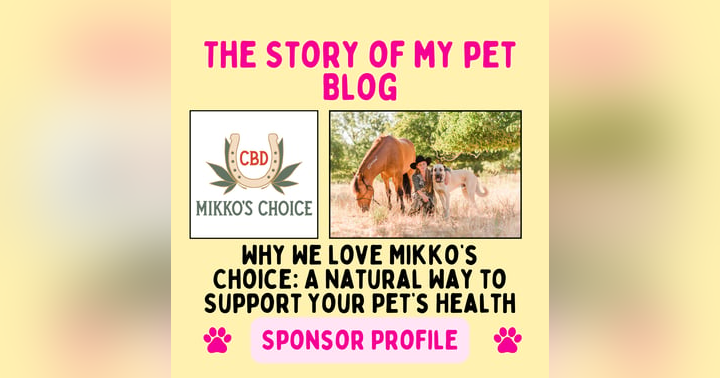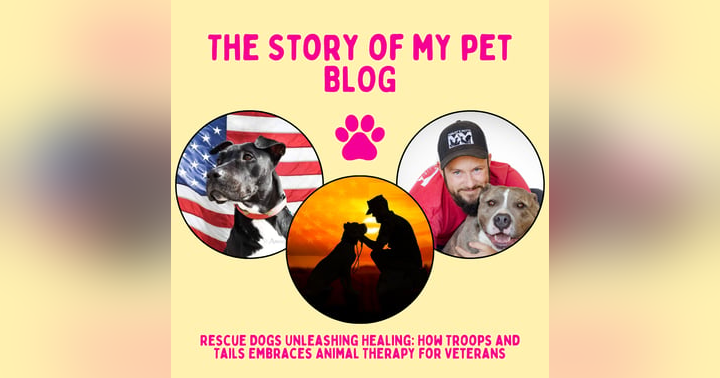Solutions for Cats with Allergies, Kidney Disease, and Digestive Issues: Real Stories and Proven Strategies
Welcome to another deep dive into feline health! In this blog post, inspired by our recent episode, "Learning Pet Nutrition Science: How Four Cats Taught This Couple Everything About Pet Food," we're exploring common feline health challenges and offering practical, nutrition-based solutions. Just like Holly Baer from Superior Feline, whose journey began out of necessity for her own cats, we aim to empower you with the knowledge to improve your cat's quality of life. We'll cover allergies, kidney disease, and digestive issues, offering actionable advice you can implement today. So let's jump in and unlock the secrets to a healthier, happier cat!
Introduction: Addressing Common Feline Health Challenges
As loving cat owners, we all want the best for our feline companions. However, cats, just like humans, can face various health issues that can impact their well-being. Allergies, kidney disease, and digestive problems are among the most common concerns that can significantly affect a cat's quality of life. Recognizing these issues early and understanding how to manage them effectively is crucial. This blog post is designed to provide you with valuable insights and practical strategies to tackle these challenges head-on, drawing from real-life experiences and expert advice, similar to the journey discussed in our latest podcast episode.
The Superior Feline Story: A Journey Born from Necessity
The story of Superior Feline, as shared by Holly Baer on our podcast, is a testament to the power of dedication and research when faced with feline health crises. It all began when Holly's cats started experiencing severe health issues that conventional commercial cat foods couldn't resolve. Coconut, one of her beloved cats, was diagnosed with kidney disease, prompting Holly and her husband, a microbiologist, to delve into the world of feline nutrition. This led them to discover that many commercial cat foods contain ingredients and formulations that are not optimal for feline health, particularly for cats with specific medical conditions.
Inspired by their findings, Holly and her husband started experimenting with homemade cat food recipes, carefully selecting ingredients that would support their cats' health needs. They focused on creating balanced and nutritious meals that were free from common allergens and tailored to address kidney disease and digestive problems. The positive results they witnessed in their cats' health were remarkable. Coconut's kidney function improved, and other cats with allergies experienced relief from their symptoms. This success story ignited a passion in Holly and her husband to share their knowledge and help other cat owners facing similar challenges, leading to the birth of Superior Feline.
Understanding Allergies in Cats: Identifying Triggers and Symptoms
Allergies in cats can manifest in various ways, making it essential to recognize the signs and identify the triggers. Common allergens for cats include food ingredients, environmental factors, and fleas. Food allergies often involve proteins such as beef, chicken, or fish, as well as grains like wheat or corn. Environmental allergens can include pollen, dust mites, mold, and certain cleaning products. Flea allergies are a common issue, as even a single flea bite can cause intense itching and skin irritation.
Symptoms of allergies in cats can vary but often include excessive scratching, licking, or biting, particularly around the head, neck, and paws. Skin lesions, hair loss, and inflammation are also common signs. Some cats may exhibit digestive issues such as vomiting or diarrhea. Respiratory symptoms, such as sneezing or coughing, can occur in some cases. Identifying the specific allergen can be challenging, but a process of elimination through dietary changes or environmental controls can help pinpoint the culprit. Working closely with a veterinarian is crucial to diagnose and manage feline allergies effectively.
Managing Kidney Disease in Cats: Nutritional Approaches
Kidney disease, also known as chronic renal failure, is a common and serious condition in older cats. It occurs when the kidneys gradually lose their ability to filter waste products from the blood, leading to a buildup of toxins in the body. While kidney disease cannot be cured, it can be managed through proper nutrition and supportive care.
One of the primary nutritional approaches for managing kidney disease in cats is to reduce the amount of phosphorus in their diet. High phosphorus levels can exacerbate kidney damage, so choosing cat food that is specifically formulated for kidney health is essential. These diets typically have lower protein levels as well, as the kidneys struggle to process protein waste. However, it's crucial to ensure that the protein source is of high quality and easily digestible.
Increasing water intake is another critical aspect of managing kidney disease in cats. Dehydration can put additional strain on the kidneys, so encouraging your cat to drink more water is vital. This can be achieved by providing multiple water sources, using a pet water fountain, or adding moisture to their food. Subcutaneous fluid therapy, administered by a veterinarian, may also be necessary to maintain hydration in more advanced cases.
In addition to diet and hydration, certain supplements may be beneficial for cats with kidney disease. Omega-3 fatty acids, for example, have anti-inflammatory properties that can help protect kidney function. Probiotics can support gut health and reduce the buildup of toxins in the bloodstream. Always consult with your veterinarian before adding any supplements to your cat's diet.
Digestive Issues in Cats: Solutions for a Healthier Gut
Digestive issues in cats can range from occasional vomiting or diarrhea to chronic conditions such as inflammatory bowel disease (IBD) or food sensitivities. These problems can significantly impact a cat's appetite, energy levels, and overall health. Understanding the underlying causes and implementing appropriate dietary and lifestyle changes is essential for promoting a healthier gut.
One of the first steps in addressing digestive issues in cats is to identify any potential food sensitivities or intolerances. This can involve a process of elimination, where you gradually introduce new ingredients into your cat's diet and monitor their response. Common culprits include grains, artificial additives, and certain proteins. Choosing a cat food that is free from these potential allergens can help alleviate symptoms.
Probiotics, which are beneficial bacteria that support gut health, can be a valuable addition to a cat's diet. Probiotics help restore balance to the gut microbiome, improving digestion and reducing inflammation. They can be found in some cat foods or given as a supplement. Postbiotics, which are the beneficial compounds produced by probiotics, are also gaining recognition for their gut-health benefits.
In addition to diet and supplements, lifestyle factors can also play a role in digestive health. Stress can exacerbate digestive issues in cats, so creating a calm and stable environment is crucial. Providing regular exercise and mental stimulation can also help reduce stress levels. If your cat is experiencing persistent digestive problems, it's essential to consult with a veterinarian to rule out any underlying medical conditions.
Transitioning to Homemade Cat Food: A Step-by-Step Guide
Transitioning to homemade cat food can be a rewarding way to improve your cat's health, especially if they have allergies, kidney disease, or digestive issues. However, it's essential to approach this process carefully to ensure that your cat's nutritional needs are met. Consulting with a veterinarian or a veterinary nutritionist is highly recommended before making any significant changes to your cat's diet.
Start by researching balanced and complete homemade cat food recipes. Ensure that the recipes include all the essential nutrients that cats require, such as protein, fat, vitamins, and minerals. Avoid recipes that contain ingredients that are toxic to cats, such as onions, garlic, grapes, or chocolate.
Begin the transition gradually, mixing small amounts of the homemade food with your cat's existing food. Slowly increase the proportion of homemade food over a period of several days or weeks, while monitoring your cat's response. Watch for any signs of digestive upset, such as vomiting or diarrhea, and adjust the transition rate accordingly.
When preparing homemade cat food, use high-quality ingredients and follow proper food safety practices. Cook meat thoroughly to kill any harmful bacteria, and store leftovers in the refrigerator for no more than a few days. Ensure that your cat always has access to fresh, clean water.
The Power of Postbiotics: Enhancing Feline Gut Health
While probiotics have long been recognized for their role in supporting gut health, postbiotics are now emerging as a powerful tool for enhancing feline digestion and overall well-being. Postbiotics are the beneficial compounds produced by probiotics during the fermentation process. These compounds include short-chain fatty acids, enzymes, and antimicrobial peptides, which have various health-promoting effects.
Postbiotics can help improve digestion by promoting the growth of beneficial bacteria and inhibiting the growth of harmful bacteria in the gut. They can also reduce inflammation, strengthen the gut lining, and enhance nutrient absorption. Unlike probiotics, postbiotics are non-living, making them more stable and less susceptible to environmental factors such as heat and storage conditions.
Postbiotics can be found in some cat foods or given as a supplement. They are particularly beneficial for cats with digestive issues such as IBD, food sensitivities, or antibiotic-associated diarrhea. By supporting a healthy gut microbiome, postbiotics can help improve a cat's appetite, energy levels, and overall quality of life.
Tips for Picky Eaters and Multi-Cat Households
Dealing with picky eaters and managing nutrition in multi-cat households can be challenging, but with a few strategies, you can ensure that all your feline companions receive the nutrients they need. For picky eaters, try offering a variety of food textures and flavors to see what appeals to them. Warming the food slightly can also enhance its aroma and make it more enticing.
In multi-cat households, it's essential to provide individual feeding stations to prevent food competition and ensure that each cat is eating their own food. If you have cats with different dietary needs, such as a cat with kidney disease and a healthy cat, you may need to separate them during meal times or use specialized feeders that only allow access to certain cats.
Monitoring each cat's weight and body condition is also crucial in multi-cat households. Weigh your cats regularly and assess their body condition score to ensure that they are maintaining a healthy weight. Adjust their food portions as needed to prevent obesity or underweight. If you're unsure about the best feeding strategy for your multi-cat household, consult with a veterinarian or a veterinary nutritionist for personalized advice.
Conclusion: Empowering Cat Owners Through Nutrition
In conclusion, addressing common feline health challenges such as allergies, kidney disease, and digestive issues requires a comprehensive approach that includes proper diagnosis, targeted nutrition, and supportive care. By understanding the underlying causes of these conditions and implementing appropriate dietary and lifestyle changes, you can significantly improve your cat's quality of life. The journey of Holly Baer and Superior Feline, as shared in our episode "Learning Pet Nutrition Science: How Four Cats Taught This Couple Everything About Pet Food", highlights the transformative power of nutrition in managing feline health. Remember to always consult with your veterinarian or a veterinary nutritionist before making any significant changes to your cat's diet. With knowledge, dedication, and the right strategies, you can empower your cat to live a healthier and happier life.








